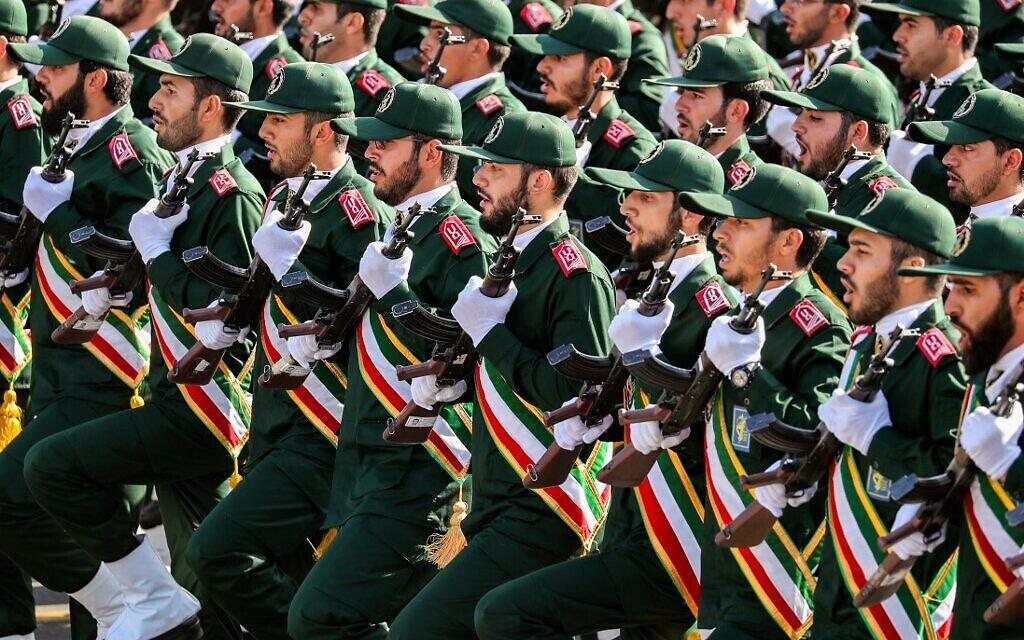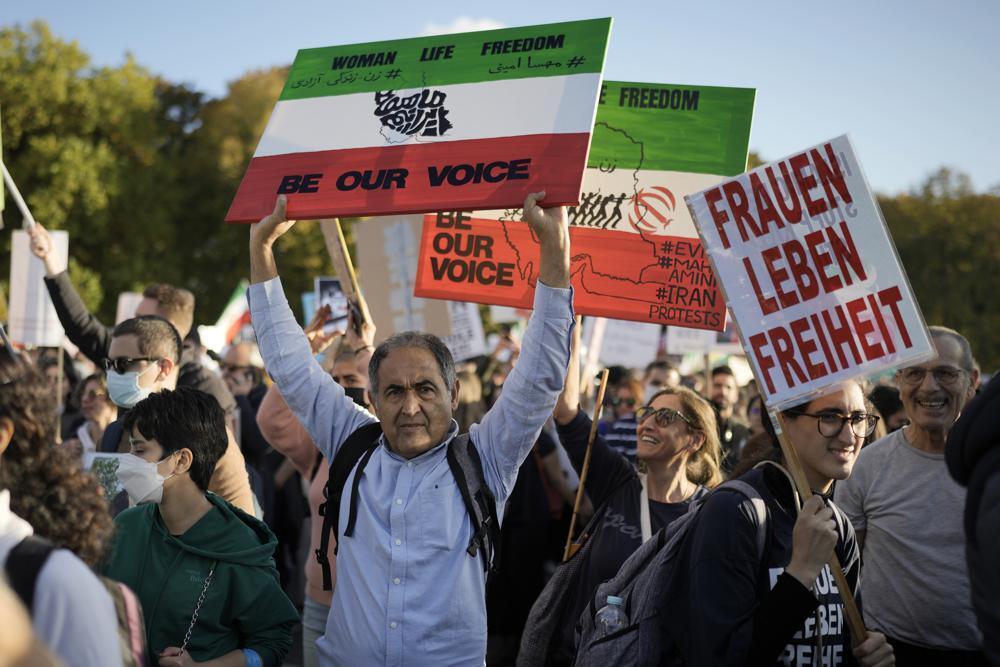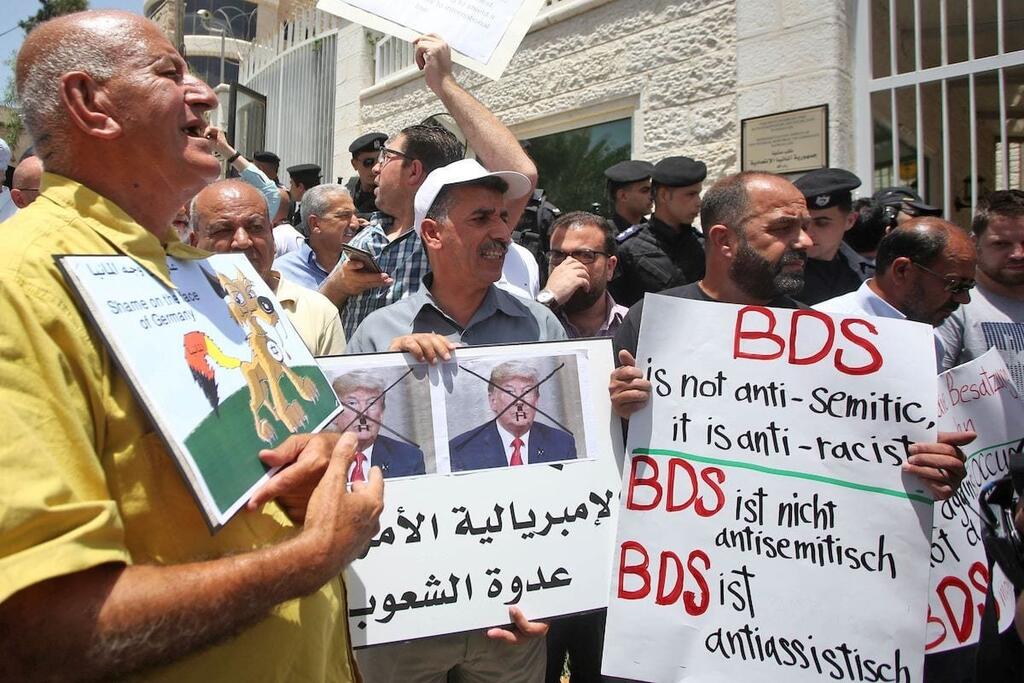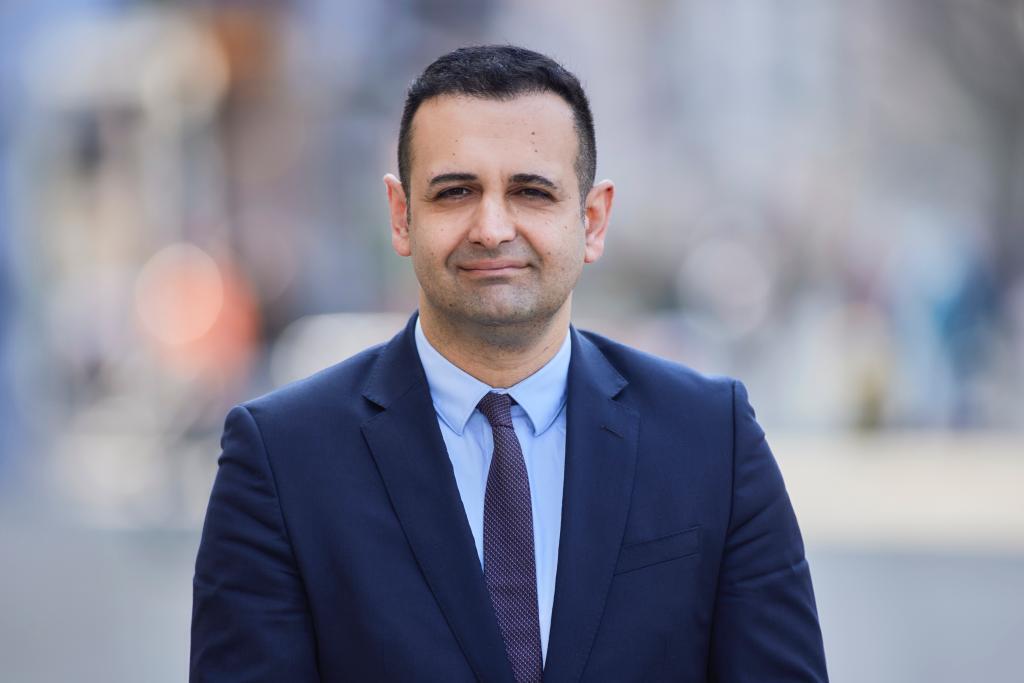While the United States and Europe are exploring the potential of returning to nuclear negotiations with the Islamic Republic of Iran, Germany continues to play a key role in the future of Iranian relations with the entire Western world.
With the Islamic Republic reaching record-breaking numbers of executions with 142 in May alone, there is increasing pressure to label the Islamic Revolutionary Guard Corps (IRGC) as a terrorist organization in Europe.
General Secretary of the German Free Democratic Party (FDP), which sits in the government coalition, Bijan Djir-Sarai, has consistently called for a new German policy on Iran over the past few years. He was also a key voice in designating Iran-backed terror group Hezbollah as a terrorist organization in Germany, and has strongly opposed the anti-Israel BDS movement in Germany.
Today, Djir-Sarai, who was born in Tehran himself before moving to Germany as a child, says it’s necessary for not just Germany, but the whole European Union to develop a new Iran strategy – and that furthermore, Israel is a key partner in the fight against the Islamic Republic.
“Two things are very clear. Israel, the only democracy in the region, is the most important partner for us… and Iran, the Islamic Republic, is the mother of most of the problems in this region,” says Djir-Sarai.
“I think many times European countries are naive when they talk about Iran, to try to have diplomatic relations with Iran, with this regime, the Islamic Republic, in my point of view, it doesn't work. Today, we have many people in our parliament, who say our policy, our way of thinking about Russia, was naive. I'm sure that one day they will say the same thing about Iran,” he adds.
So what does a “new approach” to Iran look like? Djir-Sarai argues that Germany must have a more realistic view of the regime in Iran and must also support the revolution on the ground in Iran. On the issue of returning to nuclear negotiations, Djir-Sarai was clear that no negotiations should be taking place because we’ve seen its failure already. Additionally, he said that designating the IRGC as a terrorist organization is a key step in holding the Islamic Republic accountable for their activities at home and abroad.
IRGC designation not as simple as it sounds
The terror designation of the IRGC has been a major policy initiative of Israel as well, with Prime Minister Benjamin Netanyahu meeting with European leaders on this issue in recent months. But while multiple EU countries have stated they support designation, Joseph Borrell, the Representative of the European Union for Foreign Affairs and Security Policy, has balked. Those who are hesitant to label the IRGC as a terrorist organization argue it would damage any potential leverage Europe has with the regime in nuclear negotiations. But Djir-Sarai, an Iranian himself, isn’t buying it.
4 View gallery


Members of Iran’s Islamic Revolutionary Guard Corps (IRGC) march during the annual military parade
(Photo: AFP)
“The Revolutionary Guards are not only a military group…They have big companies, they have their own security services, they have their own secret services, they have their own foundations, they are the real rulers of Iran today. So to say, ‘this is now a terror organization’, means you end diplomatic relations with Iran. This is the point. This is why many European countries are careful. But I think this is necessary,” he says.
He continues, “It is possible to list the Revolutionary Guards and to change the Iran strategy, but the European Union, for example, Mr. Borrell…they don't want this because they still believe there is no revolution in Iran. The Europeans believe that the JCPOA has a future. I don't believe it.”
However, Djir-Sarai also emphasized that there are many voices in the German government explicitly supporting the pursuit of regime change in Iran by the Iranian people, but stated that “these are only words – there is no action. This is a problem…and there is no real pressure also from Germany to the European Union to change this.”
Djir-Sarai also described the hypocrisy on Iran policy that many Iran policy hawks have lamented when it comes to dealing with the Islamic Republic, “I remember the days after Mr. Kashoggi was killed. Everywhere in Europe, we had to change our policy. There are no weapons anymore for Saudi Arabia…But in Iran, this regime killed millions of people and there is no sign of policy change.”
4 View gallery


People attend a protest against the Iranian regime, in Berlin, Germany, Saturday, Oct. 22, 2022, following the death of Mahsa Amini in the custody of the Islamic Republic's notorious 'morality police'
(Photo: AP Photo/Markus Schreiber)
That being said, there is hope as more attention than ever is being paid to the human rights crisis in Iran as a result of the anti-regime protests. “We talk in Germany a lot about human rights in Saudi Arabia or human rights in Belarus or Russia or China. But to talk about human rights in Iran was... I don't know, I didn't see this last year. Because of the revolution in Iran, because of the pictures we have and the support from the whole world, everybody can see what this regime is. But before, it was normal. Big mistake in my point of view.”
A nuclear Iran is not tolerable
Regarding the Iranian nuclear program, Djir-Sarai explains that the regime’s agenda is to develop a nuclear program as an insurance policy for the regime to stay in power. “The Islamic Republic is now very dangerous for the whole region, and also dangerous for us. We have war in Europe, and they are supporting Russia with weapons, also with military consultants. This regime with nuclear abilities is not tolerable. We cannot accept this. Yes, for Israel, it is a problem, but not only, it is also a problem for us.”
Djir-Sarai is candid when it comes to calling out the regime’s obsession with Israel, which the Islamic Republic has made a key agenda item of their foreign policy, and explains that these aren’t merely empty threats: “The leaders of the Islamic Republic have said since 1979 that they want to destroy Israel. Many people in Europe don't believe this. They think this is revolutionary rhetoric or words. But I know…this is not a joke.”
But nuclear threats are not the only method the regime uses to push their extremist agenda in Europe – including against Israel. For example, the annual Al Quds Day march, an anti-Israel initiative of the Islamic Republic that’s been exported all over Europe, where protesters call for the destruction of Israel.
Anti-Israel hatred as a strategy
Another strategy the regime has implemented is the establishment of Islamic centers throughout Europe which function not as mosques as stated and registered, but as de-facto embassies of the Islamic Republic. In Italy, Germany and the UK, the Iran regime funded Islamic centers have all faced calls to be shut down. This is a step Djir-Sarai believes is needed to effectively fight against the regime’s nefarious activities in Europe.
In the name of “criticizing Israel,” antisemitism and violent extremism of the regime in Iran are being promoted and legitimized, including through the BDS movement which Djir-Sarai opposes. “Four years ago we had a resolution in our parliament and for example we said we are for freedom of speech but we don’t have BDS in our parliament and we will not allow them to use rooms of the parliament or hold meetings in parliament and I think that was a good resolution. But unfortunately, many people in Germany, and also many German politicians believe that this is a form of free speech…but sometimes people are naive."
4 View gallery


Palestinians protest outside Germany's Representative Office in Ramallah following the Bundestag's 2019 condemnation of the BDS movement as antisemitic
(Photo: AFP/Getty Images)
Despite the complexities, Djir-Sarai is a huge advocate for the mutually beneficial German-Israel relationship, and has visited Israel in the past. Calling the delegitimization campaigns against Israel “unfortunate”, Djir-Sarai explains, “Sometimes people are talking about Israel and they have never been to Israel, they have no idea about Israel…they do not know how many people from different nations are living in Israel – Arabs, Israelis, Muslim Israelis, all these together, and they are living well together! Many people don't want to accept this.”
While there are German leaders like Djir-Sarai leading the charge against dangerous terrorist groups and the Islamic Republic, he and his allies in the German government are still fighting an uphill battle when it comes to dealing with the IRGC and the Islamic Republic. Europe has made progress on holding the regime accountable for terrorist activities, but as Djir-Sarai outlined, it’s time for a new European approach to the Islamic regime.


